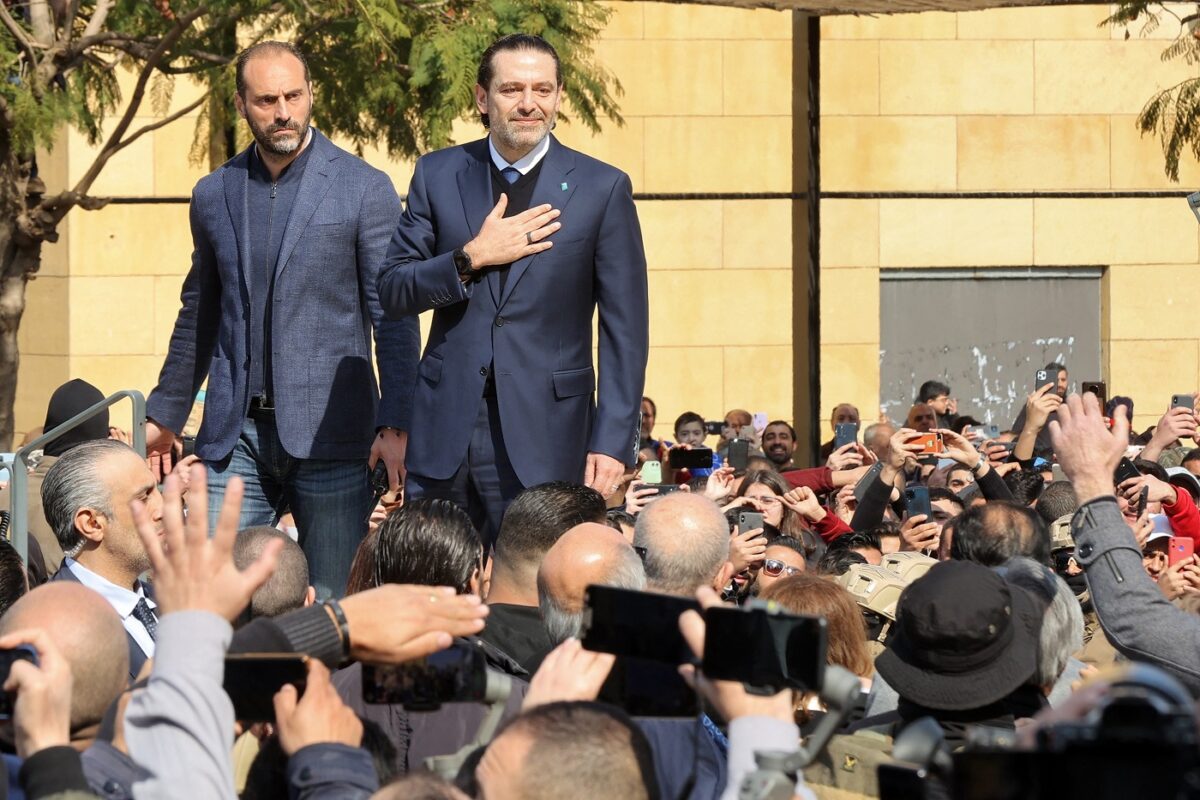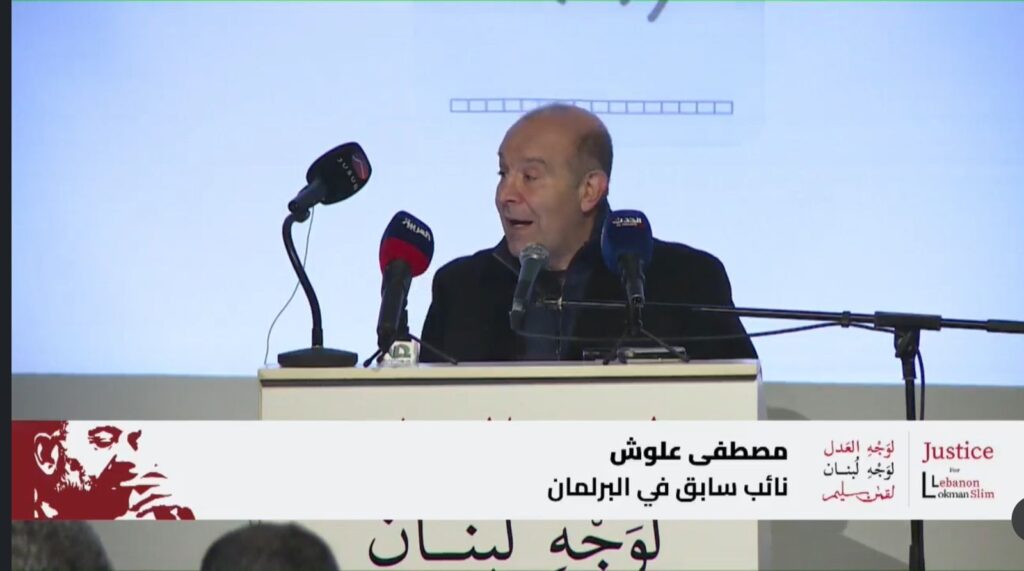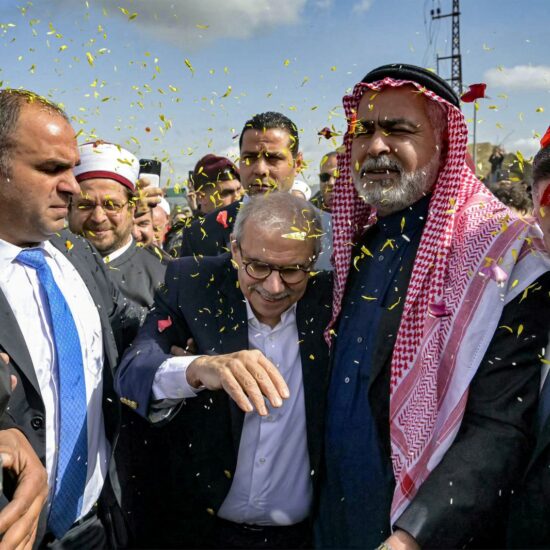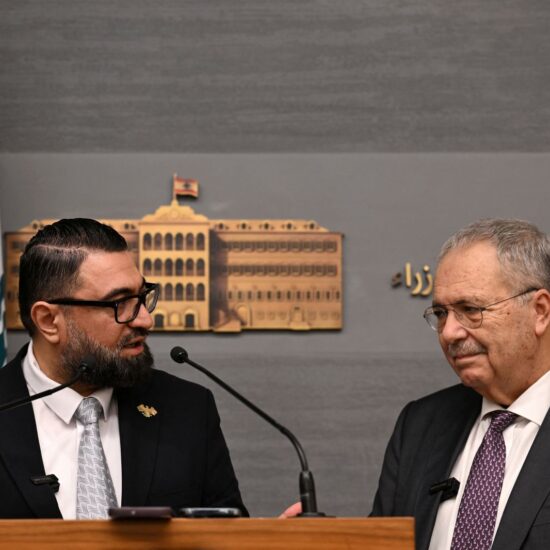
Preparations are underway in the coordination office of the “Future Movement” in Sidon and the South, ahead of the commemoration of the nineteenth anniversary of the martyrdom of President Rafik Hariri and the meeting with President Saad Hariri in front of the martyr’s tomb on February 14th in Beirut.
Saad Hariri, the former Prime Minister of Lebanon, has once again emerged at the forefront of political discussions in Lebanon. This comes amidst a political crisis and concerns over the widening circle of violence with Israel, as well as the economic crisis in the country.
Saad Hariri, who withdrew from Lebanese politics in 2019 amidst the “October Revolution” protests, has reappeared as his annual visit to Beirut nears, coinciding with the anniversary of his father’s assassination, Rafik Hariri, on February 14th.
On February 3rd, Lebanese channel MTV tv” cited former Member of Parliament from the “Future Movement” bloc, Sami Fatfat, stating that Hariri’s reengagement in political affairs is tied to ongoing developments in the region.
When Saad Al Hariri exited the political stage, it stirred controversy and surprised many. Despite this, a considerable number of his supporters remained steadfast, while others distanced themselves from him. The Sunni sect, lacking adequate representation in Lebanon’s sectarian parliament, has been left feeling marginalized, according to experts. This perception has led to a sense of disempowerment and lesser importance in Lebanon’s political landscape compared to other sects.
So long, Saad
Ever since the assassination of his father, Rafiq, in February 2005, Hariri has stood out as a prominent Sunni political figure in Lebanon. Widely respected in Western capitals, he played a key role in steering the Cedar Revolution, which ultimately ended Syria’s longstanding occupation. Leading the Future Movement, he guided the “March 14” coalition, known for its pro-Western stance and opposition to Hezbollah, to electoral victories in both 2005 and 2009. Hariri’s amiable personality and sympathetic nature have further bolstered his reputation as a respected leader.
There have been multiple occasions signaling Riyadh’s dissatisfaction with Hariri, particularly regarding his willingness to negotiate with Hezbollah. Reports suggested that Saudi Arabia strongly opposed Hariri’s last two attempts to form a government – first in 2019, then again in 2020-2021. After nine months of unsuccessful attempts, he decided to step back. At that time, many observers speculated that Hariri’s firm stance against President Michel Aoun was an attempt to show Riyadh his resolve against Hezbollah and its allies.
Following the 2022 elections, no Sunni leader has emerged with the same influence and widespread appeal as Saad al-Hariri, leaving a significant political vacuum for the Sunni community, constituting one-third of the population, in a country governed by a delicate sectarian power-sharing arrangement.
“After his resignation, no one was able to fill his place,” political analyst Rabih Dandachly told NOW. “There might be some small local authority figures, but no one emerged with the influence that Saad had.”
Dandachly further explained that this has left the Sunni community feeling abandoned in a country characterized by sectarianism and divisions.
“The Sunni share of ministries and official positions diminished without the proper representation and backing,” he added.
Underrepresented
The issue of representation becomes particularly acute in political negotiations. Dandanchly contends that without proper representation of the Sunni sect, diplomats, foreign politicians, and various authority figures may engage in discussions without a representative from each major sect in Lebanon, including Shia, Christians, and Druze. However, the Sunni community lacks a prominent figure to represent it in such discussions.
In the 2022 elections, Sunni voters faced a choice between three types of candidates, as outlined by the analyst: independent or opposition candidates capitalizing on the wave of change, those with localized popularity, and those closely associated with Saad al-Hariri and supported by his electoral machinery.
Despite his current visit, Dandachly suggests that there is little prospect of Hariri returning to politics, as the reasons for his departure remain relevant and prominent.
Mustapha Allouch, a Lebanese politician and former member of Parliament, told NOW that the Lebanese media has been overly emphasizing Hariri’s visit, suggesting that people’s expectations may lead to disappointment.

Mustapha Allouch, a Lebanese politician and former member of Parliament
‘Everyone is waiting to see if the 2024 version of Saad al-Hariri will be any different than previous versions,” Allocuh said. “What’s worrying is that people with high expectations might be let down.'”
Despite the current void in Sunni leadership, Allouch asserts that the sect does not need a new authority figure similar to those already present in Lebanon’s sectarian political system. Instead, he advocates for a move toward a democratic system where public interest takes precedence over personal and sectarian interests.







